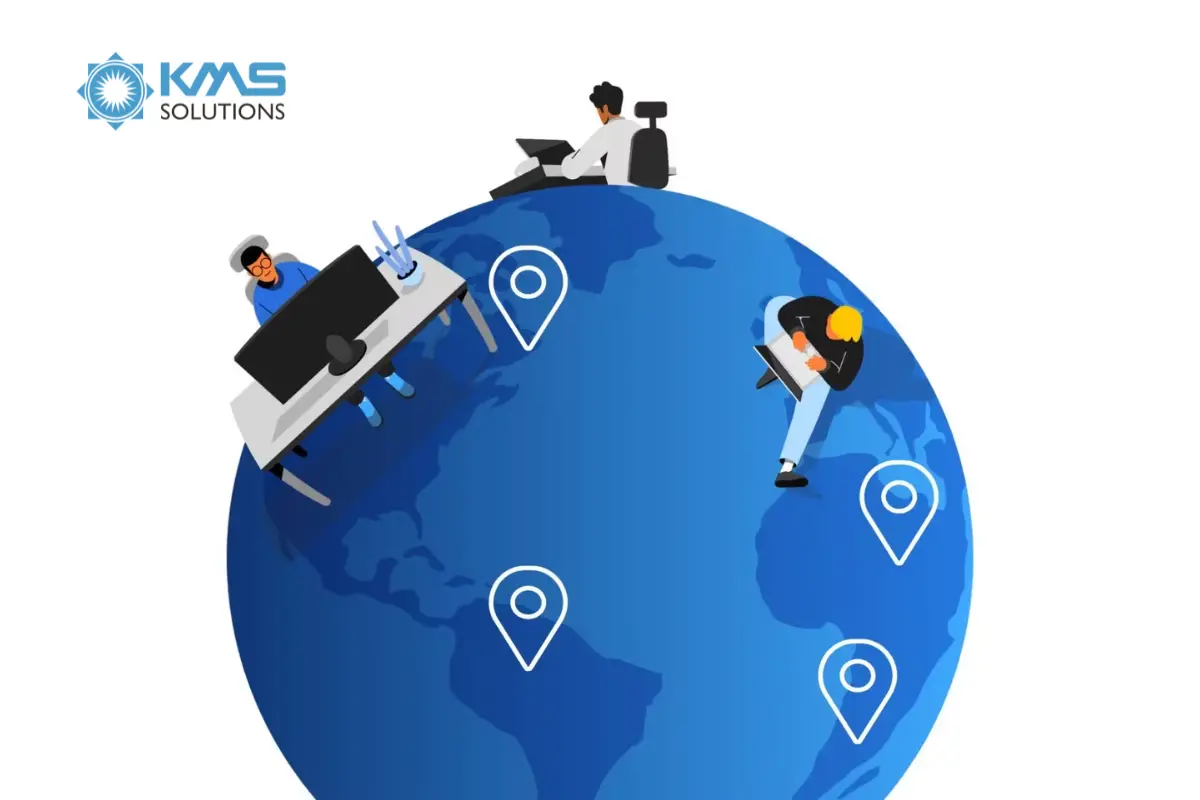As businesses increasingly turn to technology to drive growth and enhance customer experiences, the significance of choosing the right software development partner has never been more critical. In the Asia-Pacific (APAC) region, Australia, New Zealand, Singapore, Malaysia, and Vietnam have established themselves as frontrunners in the software development arena, each with distinct advantages that cater to a variety of business needs.
With their commitment to innovation, investment in technology infrastructure, and access to a skilled workforce, these nations are well-positioned to support businesses in their digital transformation journeys. Let’s explore what sets these nations apart.
Australia: A Mature Software Development Market
Among different countries in the APAc region, Australia has long been a powerhouse in the IT sector, and software development is no exception. With a highly developed economy and a stable political environment, the country offers an attractive destination for businesses seeking advanced software solutions. Major cities like Sydney, Melbourne, and Brisbane serve as tech hubs where both startups and large multinational corporations thrive.
Australia’s diverse and multicultural workforce provides companies with a range of creative solutions and perspectives, which enhance innovation.
Key Strengths:
- Skilled Workforce and High-Quality Education: Australian universities rank among the best in the world, producing high-caliber graduates in software engineering, data science, and computer science. Moreover, Australia attracts a significant amount of international talent, which helps diversify its tech workforce.
- Innovative Ecosystem: With cities like Sydney and Melbourne evolving into tech hubs, Australia provides fertile ground for startups and innovation centers.
- Government Support: The Australian government has created several programs and grants to support tech innovation, including the research and development (R&D) tax incentives and the Digital Economy Strategy 2030.
Australia’s commitment to innovation, government support, and strong educational framework ensures that it remains a competitive player in the global software development market. This country is ideal for businesses looking for innovation-driven, custom software solutions, especially in fields requiring high regulatory compliance, such as banking and financial services.
Challenges:
Despite its many strengths, the Australian software development market faces challenges related to high operational costs, particularly in cities like Sydney and Melbourne, where the cost of living and doing business can be substantial.
Additionally, labor rates for experienced developers here are substantial, making outsourcing costs or nearshoring to more affordable regions such as Vietnam or Malaysia a popular strategy for businesses on a tighter budget.
Read more: Top 5 Countries for Offshoring Software Development

New Zealand: A Hub for Agile and Cutting-Edge Software Development
New Zealand is gaining prominence as a hub for software development cost, particularly in niche industries such as agriculture, financial services, and healthcare. The country’s tech ecosystem is built around innovation, agility, and a strong community of entrepreneurs and developers.
Known for its culture of innovation and agile methodology, New Zealand is increasingly becoming the go-to destination for companies looking for creative, tailored software solutions.
Key Strengths:
- Agile Development Culture: New Zealand’s tech ecosystem is heavily influenced by agile principles, making its software developers particularly skilled at rapid, iterative development cycles. This culture also makes it easier for companies to quickly adapt to changes and scale their software solutions.
- Niche Expertise: The country’s strong emphasis on sustainability and renewable resources has led to the development of software solutions tailored to these sectors.
- Remote Working Culture: With a strong infrastructure for remote work, New Zealand developers are adept at collaborating with international clients and delivering projects on time despite geographical distances.
- Work-Life Balance and Quality of Life: New Zealand is renowned for its excellent work-life balance and high quality of life, making it an attractive location for skilled professionals in software development.
New Zealand’s relatively small but highly skilled workforce, combined with its focus on agile methodologies, makes it a preferred destination for businesses looking for flexible and dynamic software solutions.
Challenges:
New Zealand’s relatively small population and geographical location can present challenges for software development companies looking to scale. Many firms must look to international markets to grow their customer base, which can require significant resources and investment. Additionally, as Australia, labor costs are higher compared to other countries in the APAC region.

Singapore: The Technological Powerhouse of Southeast Asia
Singapore has earned a reputation as one of the leading technology hubs in Southeast Asia. The country has positioned itself as a global leader in software development and innovation, attracting both local startups and multinational corporations, and its IT and software development sectors are no different.
Singapore’s financial technology scene is driven by the need for digital banking, online payment solutions, and cybersecurity measures, with companies like Grab leading the way in mobile payments and digital services.
The country’s strategic location, robust legal framework, and commitment to innovation make it a top destination for onshore and offshore software development projects.
Key Strengths:
- Strategic Location and Business-Friendly Policies: Singapore’s location at the heart of Southeast Asia makes it a gateway to both Asian and Western markets. Moreover, coupled with its pro-business policies, makes it an ideal location for many multinational corporations looking to scale software development operations across the region.
- Highly Skilled Workforce: Singapore boasts a highly skilled and diverse workforce, with strong expertise in cutting-edge technologies such as AI, machine learning, and cloud computing.
- Strong Government Support: The Singaporean government has invested heavily in tech infrastructure and talent development, with initiatives like the Smart Nation program and support from the Infocomm Media Development Authority (IMDA) aiming to transform the country into a global tech leader.
- Regulatory Environment: Singapore’s business-friendly regulations, intellectual property protection, and strong legal frameworks make it an ideal location for software development.
Singapore excels in fields like cybersecurity, FinTech, and AI-driven software solutions, making it a hotspot for businesses that require highly secure and sophisticated software products. The country is expected to be a top destination for software development companies looking to establish a presence in the Southeast Asia region.
Challenges:
While Singapore offers numerous advantages as a software development hub, the country faces challenges related to its high operational costs. The cost of living and doing business in Singapore can be prohibitive for smaller companies, and competition for top tech talent is intense.
Malaysia: A Cost-Effective Software Development Destination
Malaysia has emerged as a popular destination for it outsourcing due to its cost-effectiveness without compromising on quality. Cities like Kuala Lumpur and Penang are becoming attractive destinations for software development companies looking to leverage Malaysia’s skilled workforce and cost-effective operations.
With a rapidly growing tech sector, Malaysia offers a unique combination of affordability, technical expertise, and a strong English-speaking workforce.
Key Strengths:
- Cost-Effective Operations: Software development services in Malaysia are significantly more affordable compared to Australia, New Zealand, and Singapore, making it an attractive option for a destination for outsourcing software development and IT services.
- English Proficiency: With English as a second language, communication barriers are minimal, making it easier for businesses from English-speaking countries to collaborate with Malaysian developers.
- Growing Tech Talent Pool: Malaysia’s education system is increasingly focusing on developing talent in tech-related fields, such as software engineering and data science. Top universities in the countryy produce graduates with the necessary skills to support the growing software development industry.
Challenges:
While Malaysia’s tech ecosystem is growing, it may not yet be as mature as that of Australia or Singapore, especially in terms of cutting-edge technologies like AI and blockchain. However, for businesses looking for high-quality yet affordable software solutions, Malaysia is a strong contender.
Read more: Why Vietnam Is in Top Destinations for Software Outsourcing
Why Businesses Should Consider the APAC Region for Software Development
The Asia-Pacific (APAC) region has rapidly emerged as a leading destination for software development due to its unique blend of skilled talent, cost-effective solutions, and thriving tech ecosystems. Australia and New Zealand offer high-quality, agile software solutions, particularly in niche sectors. Singapore provides a robust legal framework and expertise in cutting-edge technologies, while Malaysia and Vietnam stand out for their affordability and growing tech ecosystem.
For businesses looking to develop innovative, secure, and scalable software solutions, the APAC region offers diverse options tailored to various needs and budgets.

Conclusion
Whether you are a startup looking to build a Minimum Viable Product (MVP) or a large enterprise seeking to scale your digital transformation, choosing the right software development partner is crucial. KMS Solutions provides top-tier software development services across the APAC region, offering expertise in technology consulting, mobile app and software development, and software testing. We are passionate about helping businesses succeed through cutting-edge software development.











